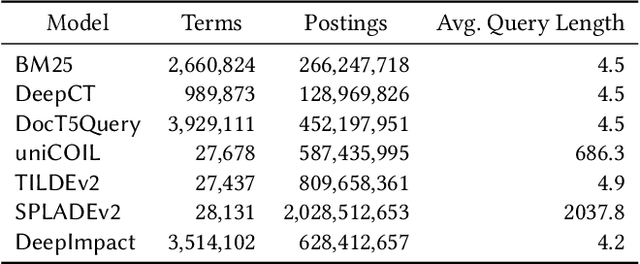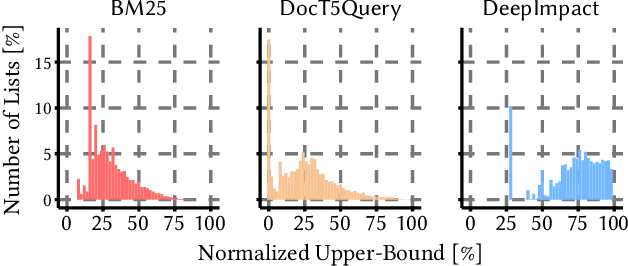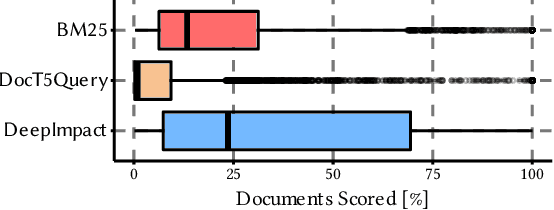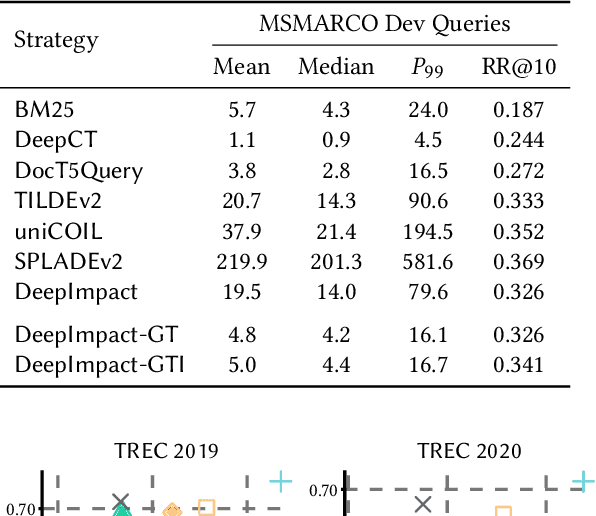Faster Learned Sparse Retrieval with Guided Traversal
Paper and Code
Apr 24, 2022



Neural information retrieval architectures based on transformers such as BERT are able to significantly improve system effectiveness over traditional sparse models such as BM25. Though highly effective, these neural approaches are very expensive to run, making them difficult to deploy under strict latency constraints. To address this limitation, recent studies have proposed new families of learned sparse models that try to match the effectiveness of learned dense models, while leveraging the traditional inverted index data structure for efficiency. Current learned sparse models learn the weights of terms in documents and, sometimes, queries; however, they exploit different vocabulary structures, document expansion techniques, and query expansion strategies, which can make them slower than traditional sparse models such as BM25. In this work, we propose a novel indexing and query processing technique that exploits a traditional sparse model's "guidance" to efficiently traverse the index, allowing the more effective learned model to execute fewer scoring operations. Our experiments show that our guided processing heuristic is able to boost the efficiency of the underlying learned sparse model by a factor of four without any measurable loss of effectiveness.
 Add to Chrome
Add to Chrome Add to Firefox
Add to Firefox Add to Edge
Add to Edge